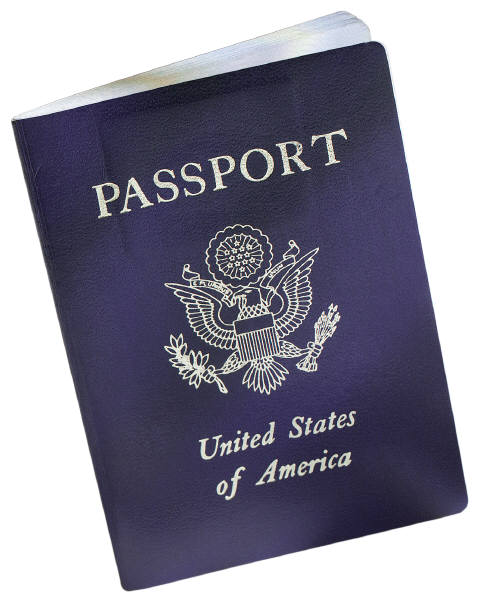The Internet’s Impact on Running an International Business
Then and Now
I arrived at the airport 3 hours in advance of departure per the instructions of the airline. As was my practice, I had called the airline prior to leaving, waited on hold for over 30 minutes, and confirmed the departure time. Once at the airport, I stood on line to check my bags and received my boarding pass.
The objective of the trip was to get a contract signed that was negotiated over the course of the past 6 months after a number of trips back and forth on the part of all parties. Time was of the essence. I booked a round trip ticket on the Concord to Paris, planned on meeting at the airport, and returning the same day.
The date was sometime in the early 80’s. I had been selected to head the International Division of the company in late 1979. Prior to launching our business abroad, as part of the due diligence process, I spent a year visiting key markets. During this time, I retained a former head of the International Division of a major consumer products company to assist in evaluating our potential overseas and to develop a business plan.
Once the business was underway, my traveling schedule consisted of going to Europe every 6-8 weeks and to the Far East every 3-4 months. Representatives from our various business entities came to our home office usually twice a year. Communications were limited to expensive phone calls and faxes.
Life as an international businessman has changed radically in the past 40+ years. Technology has played a major role in changing how business is conducted, particularly on a global scale.
Communications
As indicated above, the only means of corresponding 40+ years ago was by phone or fax, both impersonal and costly. I started and managed the company’s global business long before the Internet was available. At that time, frequent traveling was the only means of maintaining contact and controlling the local markets. Phone calls were only handled in the office. Due to the time differences, I was in the office earlier than anyone else and was able to leave prior to the evening rush hour, since it was already nighttime abroad.
In today’s world, business is conducted 24/7. All communication vehicles (telephone, video conferencing, emails) are free. Mobile technology allows us to stay in touch wherever we are, in the office, at home, or on the beach.
Managing a global business
“Google is to the Internet what the card file is to the library.” The accumulation of information is a much simpler process now than it was when I was going through the due diligence process many years ago. While onsite visits are still an essential part of building a business plan, market research of all types is at one’s fingertips.
There is no doubt that if the Internet was available during my tenure. my life would have been quite different. To name a few, Email, Texting, Whats App, Video Conferencing, Cloud computing, and Docusign, and others have substantially reduced the need to be on the road as much. Reliance on local partners to provide performance analysis has been replaced by the ability to receive data directly from sales outlets.
In today’s world, the trip described in the opening paragraph would probably not have been necessary. However let’s look at the differences in traveling then and now.
- Then: Booking the flight involved calling the airline, waiting on hold, and a discussion about the various travel options available.
- Now: Through my mobile phone, I book all flights along with seat selections online.
- Then: Once at the airport, there were long lines to check my bags, get a boarding pass, and go through security.
- Now: Again, with your mobile phone, you can check in the night before and receive flight status updates, check bags at an airport kiosk, and breeze through Security using TSA.
- Then: On the return to the US, confirming flight status abroad was often challenging. Once home, processing through Security and baggage check could take hours.
- Now: From nearly anywhere in the world, it is possible to book, revise travel plans, check in and get boarding passes online. Upon arriving home, with Global Pass, it’s possible to avoid the long lines. It’s easy to book a car service before even leaving the plane.
Although I did enjoy flying on the Concord back then. all negotiations now are handled through cloud based services such as video conferencing, and email. Contracts for the most part are finalized using a program like Docusign.
I left corporate life just as the Internet started to enter both our professional and personal lives. Although I don’t miss it, I do wonder, from time to time, what my life would have been like with the tools of today.
How to Minimize Your Communication Costs When Abroad
 Planning an overseas trip and want to be able to keep in touch with family, friends, and business associates back in the US without incurring large telephone and texting charges? Having an “international” smartphone doesn’t mean you can automatically use it to make and receive calls as if you were still at home. Just last week I received a call from a client who was appalled that he received a bill from his mobile phone carrier for $1200 after returning from a ten day trip to Europe.
Planning an overseas trip and want to be able to keep in touch with family, friends, and business associates back in the US without incurring large telephone and texting charges? Having an “international” smartphone doesn’t mean you can automatically use it to make and receive calls as if you were still at home. Just last week I received a call from a client who was appalled that he received a bill from his mobile phone carrier for $1200 after returning from a ten day trip to Europe.
I have written many times that it’s impossible to recommend a computer, program, and service that fits all. The same is true regarding a communication plan. Here’s a list of some of the things that must be considered before selecting the best strategy to manage your communication costs.
– Do you have an international phone?
– Where will you be traveling to?
– How long will you be away?
– What will be your primary means of communication (phone, text, e-mail)?
– How important will it be for you to access information (using your data plan) such as news, social networking, etc.?
– Will your hotel/residence have Internet access, and is there a cost for it?
– Will you have access to wi-fi?
I have written a number of times about the different ways of using your phone overseas at no cost. I have suggested you look at Viber, WhatsApp, MagicJack, and Skype. All have the ability to communicate for free from anywhere you can access the Internet through a wireless connection.
With many smartphones, you can purchase a simcard in many countries that will fit in the side of your phone, allowing you to use a local number; thereby, reducing the cost of each call.
However, each of the major mobile phone providers (Verizon, AT&T, Sprint, T-Mobile) offer international plans that, for a fee, will substantially reduce, and in several cases, let you use your phone as if you were in the US. For example, for either a daily or monthly fee, Verizon Wireless lets you use your phone in many parts of the world as if you were still home.
Below is a list of the major mobile providers. Click on your provider, and you will be able to review the different plans available to you.
Verizon International Calling Plans
AT&T International Calling Plans
Sprint International Calling Plans
T-Mobile International Calling Plans
Keep in mind, the plan you select is based on where you will be travelling, the length of your trip, and the availability of wi-fi.
Lastly, you can always rent an international phone here in the US from a company such as Cellhire.
The important think to remember is there is no need to be out of touch or pay exorbitant prices while travelling abroad.
Is Your Child/Grandchild Studying Abroad In The Spring?
 The Internet has changed the rules for traveling. Gone are the days when keeping in touch from abroad was both a challenge and expensive. More college aged children are spending summers traveling and taking advantage of semester abroad programs. The following are some of the things parents and students must know before leaving home:
The Internet has changed the rules for traveling. Gone are the days when keeping in touch from abroad was both a challenge and expensive. More college aged children are spending summers traveling and taking advantage of semester abroad programs. The following are some of the things parents and students must know before leaving home:
– What is the Internet situation where the student will be living?
– Does he/she have an International mobile phone?
– Do you and your child have a plan to reach each other in an emergency?
– Are both of you aware of the differences between phone and data services, domestically and overseas?
– Have you checked your wireless provider’s international program? (i.e Verizon, AT&T, Sprint, etc.).
– Have you considered whether or not your child should rent a phone while traveling?
– Are you familiar with the rules surrounding Internet services abroad such as Skype, iChat, e-mail, texting, and accessing the web?
My daughters have both spent 4 months studying abroad. Despite daily phone calls to and from the United States, my total phone bill for the time they were away was under $200. If you need assistance understanding the rules of international travel and would like to know how our communication costs were kept in line, give me a call at 917 921-4518 or e-mail me at jblue@bluetutor.com
Want to Control Your International Telephone Costs?
Planning a business or pleasure trip overseas? Do you have a child studying abroad? Keeping in touch while traveling to other countries can be very costly. Fortunately, there are many Internet based programs that have reduced the costs of communicating substantially, and in many cases, for free, depending on the country.
If you own a smartphone, (iPhone, Android, or Blackberry) free calls are a snap. No need to worry about placing calls for as much as $3 to $4 PER MINUTE.
While there are many services available, I suggest you look at Viber, MagicJack, and Skype. All three have the ability to communicate for free from anywhere you can access the Internet through a wireless connection.
Many of you already are familiar with Skype which offers free video chatting with a computer, tablet, and a smartphone from a wireless connection. Using Skype on your smartphone or tablet from an area without a wireless connection is not free and the costs will depend on your carrier (Verizon, AT&T, Sprint, etc.) and the country who are in.
Viber offers free telephone calls and text messaging from smartphone to smartphone from a wireless area. Both you and the person you are calling need to have the app installed on your smartphone. The app is free.
MagicJack is a matchbook size device with a USB plug that is plugged into your laptop computer. The price of the MagicJack is $39.95 and the annual cost is under $20. It can be bought either at their website or at any electronics store (Best Buy, etc.). When you register, you select a local US number (where you live) and all calls, placed or received through the MagicJack, from a wireless area, are free.
There are a host of services available, however I am able to communicate with friends, family and business associates in other countries on a regular basis for FREE.
If you would like to discuss any of these services in greater detail, or if you have any other questions regarding how to control your international communication costs, I can be reached at 917 921-4518 or by e-mail at jblue@bluetutor.com
To listen to my latest BlogTalkRadio Program, “How to Control Your International Calling Costs,” click on the site below.
What is Viber?
Viber is a free application for calling and texting other Viber users who have also downloaded and installed the app on their mobile phones. It works on iPhones, Androids and Blackberries. The voice quality is excellent as long as you have Internet access.
Why use Viber?
- No registration required
- Instantly integrates with your contact list
- Excellent for making phone calls and texting globally, country to country
- No need to be signed into an account – phone will ring automatically
- Free when calling from a Wi-Fi area.
- Available through a 3G/4G data network (calls use your data plan)
Excellent app for people who are traveling overseas who need to maintain contact with other Viber users in other countries.
If you have any questions about Viber or any other technology subjects, my phone number is 917 921 4518 or e-mail me at jblue@bluetutor.com. Please visit my website, www.bluetutor.com to register for my updates and special offers.
Tune in to my BlogTalkRadio Show to hear all about the relevant technology news of the day.
IS YOUR CHILD TRAVELING ABROAD THIS SUMMER?
 The Internet has changed the rules for traveling. Gone are the days when keeping in touch from abroad was both a challenge and expensive. More college aged children are spending summers traveling and taking advantage of semester abroad programs. The following are some of the things parents and students must know before leaving home:
The Internet has changed the rules for traveling. Gone are the days when keeping in touch from abroad was both a challenge and expensive. More college aged children are spending summers traveling and taking advantage of semester abroad programs. The following are some of the things parents and students must know before leaving home:
– What is the Internet situation where the student will be living?
– Does he/she have an International mobile phone?
– Do you and your child have a plan to reach each other in an emergency?
– Are both of you aware of the differences between phone and data services, domestically and overseas?
– Have you considered whether or not your child should rent a phone while traveling?
– Are you familiar with the rules surrounding Internet services abroad such as Skype, iChat, e-mail, and accessing the web?
A couple of years ago, my daughter spent 4 months in Spain. Despite daily phone calls to and from the United States, my total phone bill for the time she was away was under $200. If you need assistance understanding the rules of international travel and would like to know how our communication costs were kept in line, give me a call at 917 921-4518 or e-mail me at jblue@bluetutor.com

